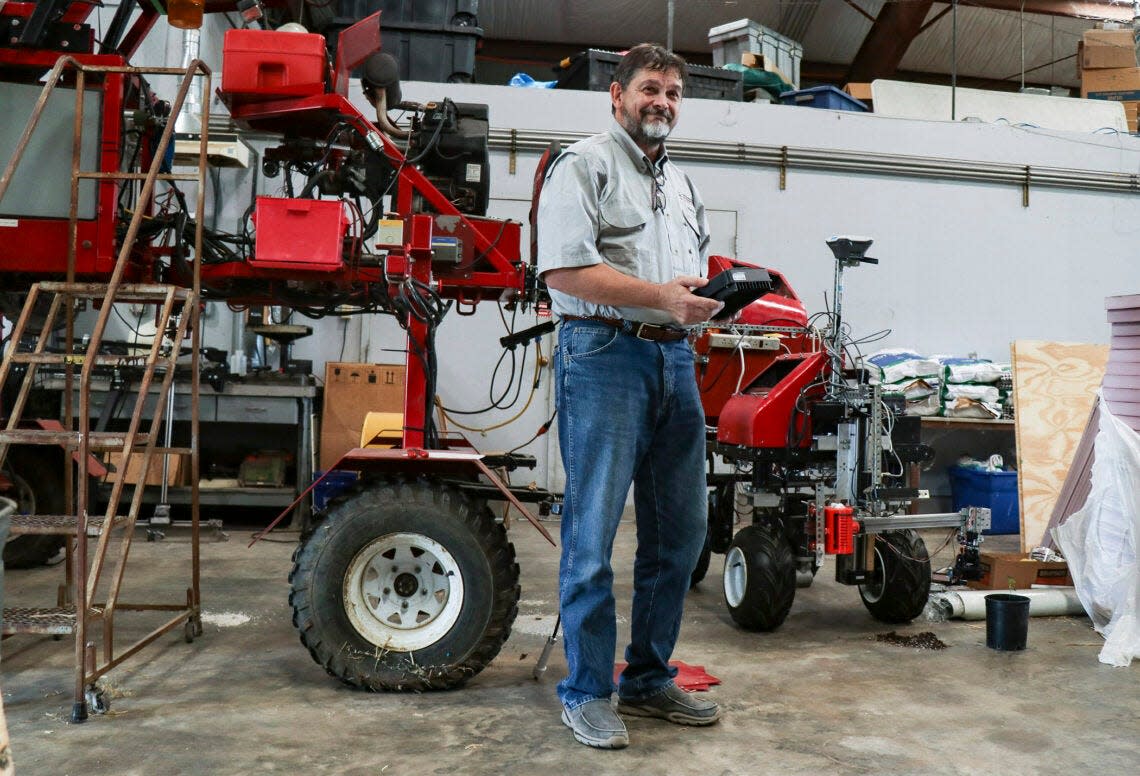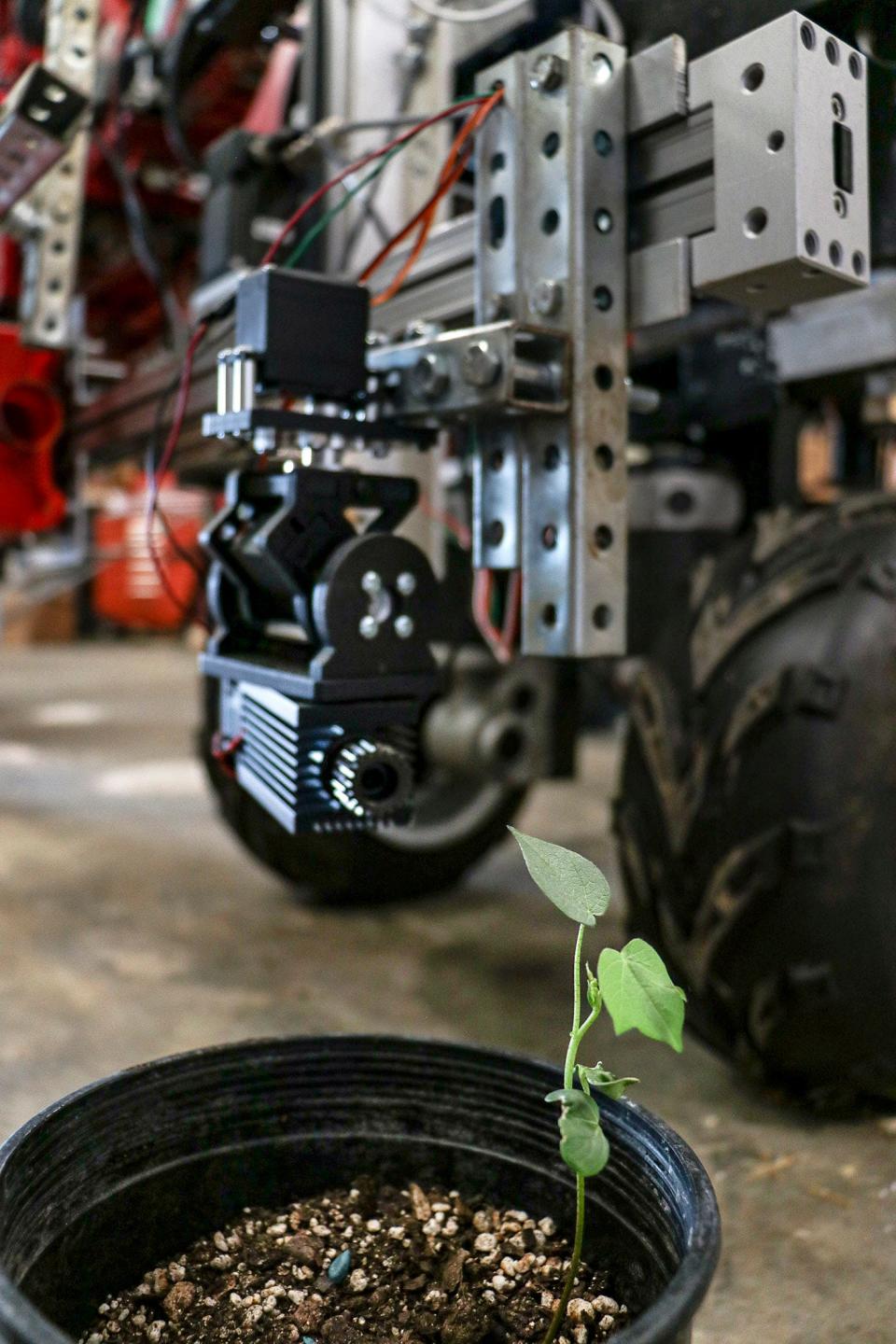Future of farming: UGA creating data-driven system that could redefine farming

A $4 million dollar federal grant awarded to Georgia’s College of Agriculture and Environmental Sciences could go a long way in providing the template for the farm of the future.
UGA, in partnership with Abraham Baldwin Agricultural College, Clemson and Kansas State, received the grant from the U.S. Department of Agriculture’s National Institute of Food and Agriculture to establish a climate-smart 4-D (digital and data-driven demonstration) Farm.
Glen C. Rains, a professor in the Department of Entomology and co-director of Agrability in Georgia at UGA’s campus in Tifton, said the grant will fund the creation of a system “to look at how to address some of the issues with current farming practices utilizing data and precision farming.”
Getting pricey: What are the most expensive Athens homes sold this year? Find out here.
Oconee Blotter: Angry shoplifter using electric cart feels home free in parking lot
“We want to be able to demonstrate what’s out there already, in terms of technology, to farmers and consultants,” said Rains, the principal investigator on the project. “There’s a lot of precision farming technology that’s been adopted and there’s a lot that hasn’t been adopted and there’s some that’s been adopted but hasn’t been used to its fullest potential. That’s because we need more information on how to fine-tune our farm management to make it the most efficient, productive and profitable for the farmer.”
Rains and his UGA colleagues develop new technologies, which will be tested on ABAC’s DATA (demonstrating applied technology in agriculture) farm. Rains said the 90-acre ABAC farm already utilizes some technologies, and new plans will enhance what’s already there to give farmers better management options for irrigation, fertilizer and pesticide applications in real time.
“These models will help forecast where the crop is going during the season and the farmer can use that information to make management changes so he has farming going in the right direction that year,” said Rains, who is also working with Clemson on another project for data creation and management.

“Traditionally, we’ve collected data at the end of the year and made decisions on improvements for the next year. What we’re trying to do now is forecast what will happen at the end of this year and what we can do right now to make that change.”
Precision farming, as defined by Rains, is a management strategy that utilizes technology to make decisions for farming operations.
The start date for the project in Tifton is Sept. 1 and Rains said the team is “gearing up” to be ready to go by the fall. He added he hopes other institutions will join in on the project, which is funded for four years.
“We plan to try to obtain additional funding as we go along to keep it moving as this should be a long-term project,” he said. “We hope to have lots of people that would want to help join in on the project and help support it as well.”
When asked how long he’d been working on the grant proposal, Rains quipped, “I’ve been at UGA since 1998 on the Tifton campus and I’ve been working in precision agriculture that whole time. You get grants for different research projects, and I’ve been part of a few, but this is the first one this large that I was the principal investigator on.
“So I guess you could say I’ve been working up to this for 25 years or so. We were very excited that we did get it.”
For more information on integrative precision agriculture at UGA, visit www.iipa.uga.edu.
This article originally appeared on Athens Banner-Herald: UGA, ABAC wins federal grant to consider new farming techniques

